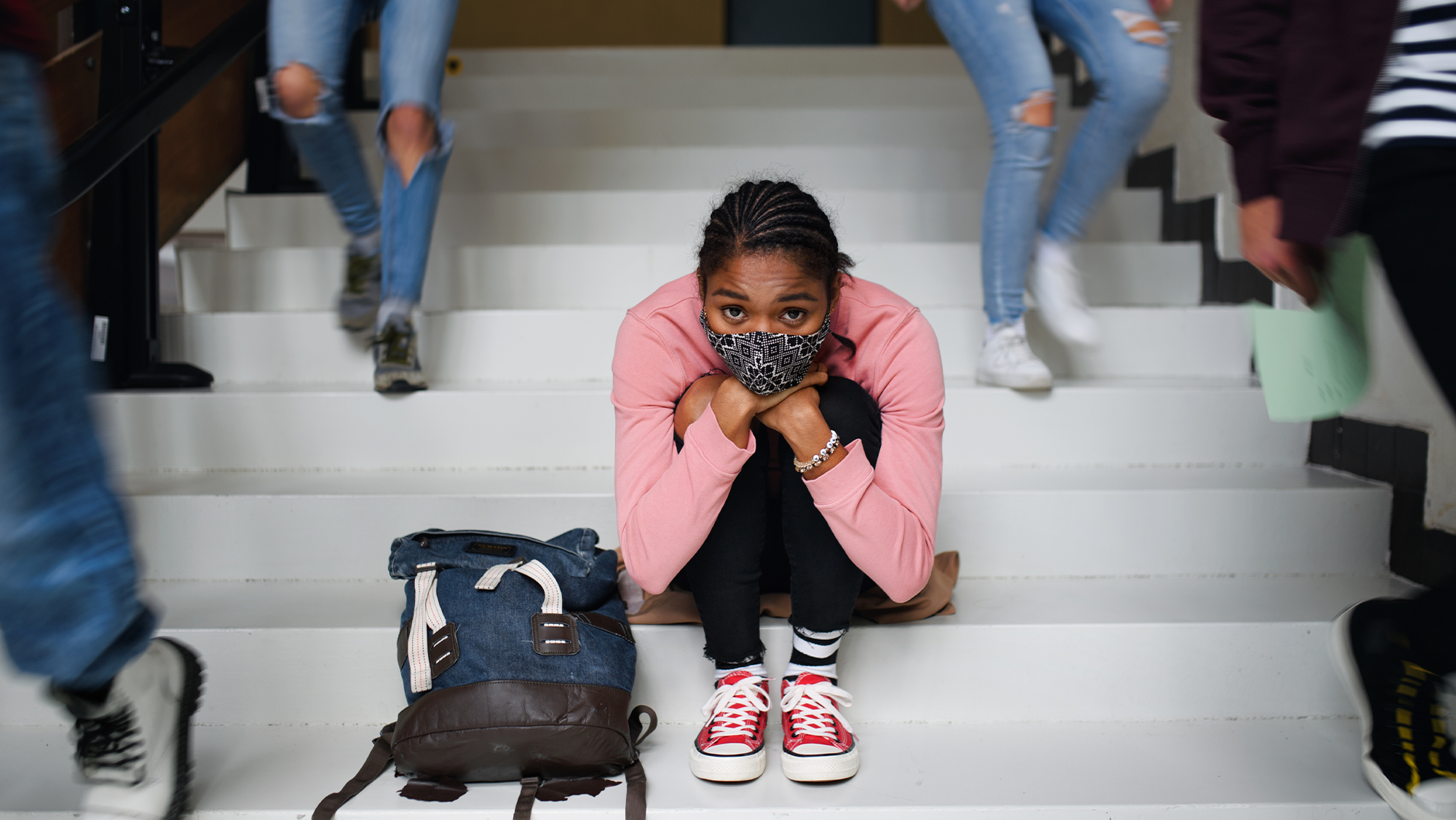
The study shows that 71% of students surveyed expressed heightened levels of stress and anxiety as a result of the COVID-19 pandemic. |
Image: Getty Images
All over the world, individuals have watched their lives completely change with the onset of the COVID-19 pandemic. Amid the confines of stay-at-home orders and social distancing, mental health has become a very prominent issue.
Researchers in the Wm Michael Barnes ’64 Department of Industrial and Systems Engineering at Texas A&M University have discovered just how much of an effect the pandemic has had, and continues to have, on students across the university. Drawing from the results of the study, they are hoping to identify and document the prevalence and severity of mental health challenges and to explore the effectiveness of a novel Mobile Health Evaluation and Lookout Program (mHELP).
The research team includes Dr. Farzan Sasangohar, assistant professor in the industrial and systems engineering department and the director of Applied Cognitive Ergonomics Lab (ACE-Lab); Alec Smith, doctoral student in industrial and systems engineering; Dr. Sudeep Hedge, assistant research engineer in the ACE-Lab; and Drs. Changwon Son and Xiaomei Wang, postdoctoral researchers in the ACE-Lab.
The team designed and developed mHELP to investigate the effectiveness of using a combination of wearable sensors, mobile health and machine learning to monitor students' mental health, as well as provide mental health support. The mHELP program is built partly off of the team’s research that focused on continual monitoring of veterans’ mental health.
“I am passionate about, and have been personally affected by, college students’ mental health. During the initial peaks of COVID-19, we noticed a significant uptick of mental health issues among our students and were determined to investigate it further,” Sasangohar said.
The team conducted interview surveys to understand the effect the pandemic has had on students’ mental health. Of the over 2,000 students surveyed, the results show a noteworthy heightening of mental health issues.
The results show that 71% expressed heightened levels of stress and anxiety as a result of the COVID-19 pandemic, and 91% of respondents expressed fear and worry about their health and the health of their loved ones.
Heightened levels of stress and anxiety can exacerbate many health and mental health problems including depression, anxiety and personality disorders. It can also lead to high blood pressure, abnormal heart rhythms and stroke.
In addition, the team has identified evidence to show the underutilization of mental health services, as well as the prevalence of strategies that render ineffective against treating mental health.
“These findings show the importance of supporting self-management of mental health. Our ongoing research addresses this need by developing self-management technologies that use non-invasive sensors, mainly provided on smartphones or watches, bundled with advanced machine-learning tools for detection of mental health anomalies, and equipping users with a suite of therapeutic and self-assessment tools on mobile health platforms,” Sasangohar said.
Researchers in the Wm Michael Barnes ’64 Department of Industrial and Systems Engineering at Texas A&M University have discovered just how much of an effect the pandemic has had, and continues to have, on students across the university. Drawing from the results of the study, they are hoping to identify and document the prevalence and severity of mental health challenges and to explore the effectiveness of a novel Mobile Health Evaluation and Lookout Program (mHELP).
The research team includes Dr. Farzan Sasangohar, assistant professor in the industrial and systems engineering department and the director of Applied Cognitive Ergonomics Lab (ACE-Lab); Alec Smith, doctoral student in industrial and systems engineering; Dr. Sudeep Hedge, assistant research engineer in the ACE-Lab; and Drs. Changwon Son and Xiaomei Wang, postdoctoral researchers in the ACE-Lab.
The team designed and developed mHELP to investigate the effectiveness of using a combination of wearable sensors, mobile health and machine learning to monitor students' mental health, as well as provide mental health support. The mHELP program is built partly off of the team’s research that focused on continual monitoring of veterans’ mental health.
“I am passionate about, and have been personally affected by, college students’ mental health. During the initial peaks of COVID-19, we noticed a significant uptick of mental health issues among our students and were determined to investigate it further,” Sasangohar said.
The team conducted interview surveys to understand the effect the pandemic has had on students’ mental health. Of the over 2,000 students surveyed, the results show a noteworthy heightening of mental health issues.
The results show that 71% expressed heightened levels of stress and anxiety as a result of the COVID-19 pandemic, and 91% of respondents expressed fear and worry about their health and the health of their loved ones.
Heightened levels of stress and anxiety can exacerbate many health and mental health problems including depression, anxiety and personality disorders. It can also lead to high blood pressure, abnormal heart rhythms and stroke.
In addition, the team has identified evidence to show the underutilization of mental health services, as well as the prevalence of strategies that render ineffective against treating mental health.
“These findings show the importance of supporting self-management of mental health. Our ongoing research addresses this need by developing self-management technologies that use non-invasive sensors, mainly provided on smartphones or watches, bundled with advanced machine-learning tools for detection of mental health anomalies, and equipping users with a suite of therapeutic and self-assessment tools on mobile health platforms,” Sasangohar said.